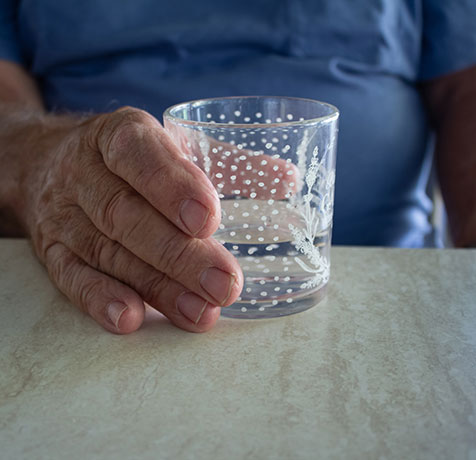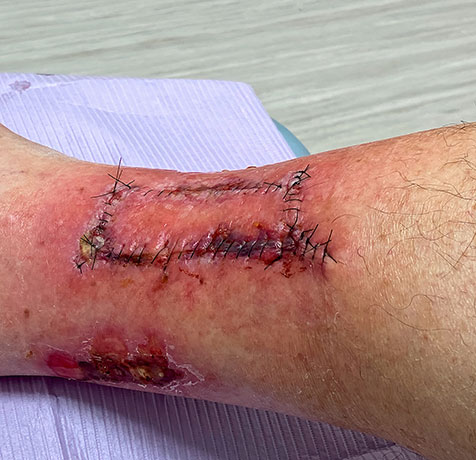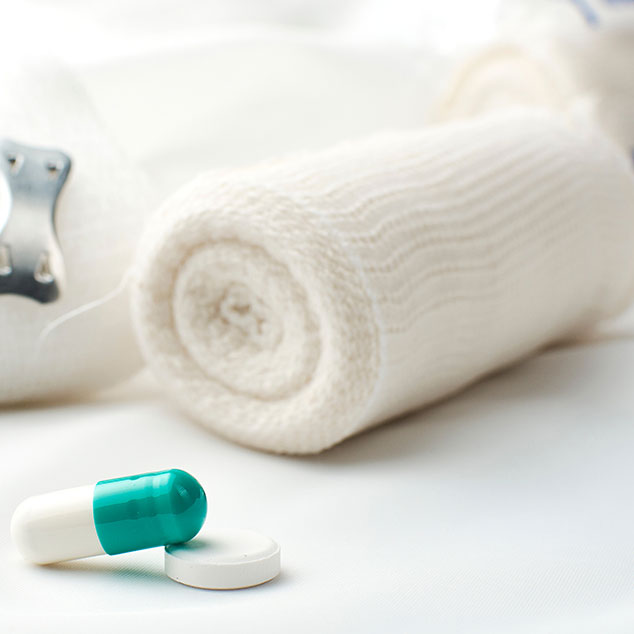HOW YOU CAN PREPARE
Getting Ready for Mohs Surgery
Mohs has been shown to be an effective cure for basal and squamous cell skin cancers. With it, though, come many unknowns. There is no way to know before surgery starts how long it will take, how big the wound will be, how the wound will heal, and how visible the scar will be. Talk with your Mohs surgeon to learn what you can do before surgery to be prepared for the day and for Mohs surgery recovery.
Steps to prepare for Mohs
Tap a tab to learn more.

Have a list of
questions ready
for your
treatment team
Get your body and mind ready
Ask your Mohs surgeon if you need to:
- Stop taking medicines, such as aspirin, blood thinners, or pain relievers. Do not stop taking any medicine unless told to by your doctor
- Stop smoking, if you smoke, and if so, for how long
To help ease the worry or fear of having surgery, make a list of questions for your treatment team. It may help to have a friend or family member with you who can write down the answers to questions like:
- Why do you think Mohs is the best treatment option for my skin cancer?
- How long does Mohs surgery take?
- How many times will my skin need to be cut to remove all the cancer?
- How long will it take to get the results each time?
- What are the options for closing the wound?
- What can I do to help the scar heal well?
- What will happen if the cancer comes back or if a new skin cancer is found?
- How much will Mohs surgery and the follow-up care cost?

Mohs surgery
can take
many hours
but plan to
be there the
whole day
Know what you can and cannot do
Ask your Mohs surgeon:
- If you can have food or water in the hours before the surgery
- If you should bring someone to the surgery who can hear the follow-up care instructions and drive you home
- What you should or should not wear
Feel comfortable with what will happen during surgery
Part of being prepared is knowing what happens during Mohs surgery. This information can help you have the right expectations for the day, which may help you feel less worried. Questions to ask your Mohs surgeon include:
- Can I wear my own clothes or will I change into a gown?
- How many times do you expect to have to cut the skin?
- When will the bleeding stop?
- How many people will be in the room during surgery?
- When will I be able to use the bathroom?
- When will the numbing medicine wear off?

2 of 5
patients will have
another
skin cancer
within 5 years
Learn how to help yourself heal
Before you leave on the day of surgery, your Mohs surgeon will give you instructions to follow at home to help you have the best outcome, such as:
- When to change bandages and clean the wound
- Prescription or over-the-counter pills or ointments
- When you can return to normal daily activities, such as wearing makeup or exercising
- When to schedule follow-up appointments to remove any stitches and check the wound
- How to treat your scar to help it heal and fade
Part of recovery from Mohs surgery is regular check-ups to see how the wound is healing and to catch any new skin cancers as early as possible. Remember that:
- It may take up to a year for your wound to fully heal
- 2 of 5 patients with one skin cancer will have another skin cancer within 5 years
How much does Mohs surgery cost?
Mohs surgery is usually covered by insurance. Your Mohs surgeon likely has a billing manager or office staff member who can help you understand your insurance benefits and estimate your out-of-pocket costs.
There are other costs to Mohs surgery that you may also want to consider. These costs may not be covered by insurance and you may not know if you will need these services until after the surgery is over.
- Prescription medicines to help with pain or to help the wound heal
- Bandages to keep the wound safe while it heals
- Other surgeries to close or fix the wound, if it cannot be closed during the Mohs surgery
- Plastic surgery to fix the scar, if you are unhappy with how the wound heals
